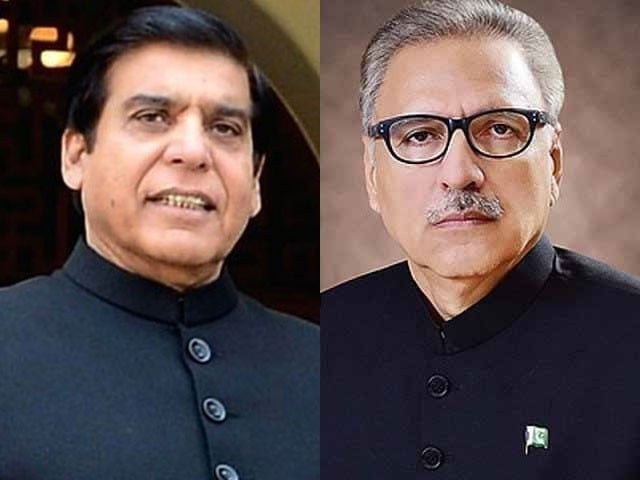Speaker overrides Alvi to summon NA session on 29th
Ashraf acts after president returns govt summary for inaugural sitting

President Dr Arif Alvi again struck a defiant posture on Monday as he returned a caretaker government’s summary for convening the inaugural session of the National Assembly, prompting Speaker Raja Pervaiz Ashraf to call the maiden sitting of the lower house of parliament on February 29.
Alvi, whose presidency is coming to a conclusion within a few weeks, emphasised that he would only approve the summary if the issue of reserved seats for women and minorities was resolved and distributed among the parties, as per law.
However, soon after the president returned the summary, the National Assembly Speaker reportedly summoned the inaugural session on February 29. On that day, the newly-elected lawmakers would take an oath to mark the beginning of the tenure of the assembly.
According to Article 91(2) of the Constitution, the National Assembly “shall meet on the 21st day following the day on which a general election to the assembly is held, unless sooner summoned” by the president.
Since Alvi returned the summary, as confirmed by officials of the Presidency, National Assembly officials said that the speaker had no other option but to call the session. However, a formal statement about summoning the session has yet to be issued.
Renowned constitutional experts as well as those who keenly observe the parliamentary activities have already conveyed in unequivocal terms that the president was constitutionally bound to summon the assembly session under Article 91(2) within 21 days from the day of holding the general elections.
“He [the president] cannot withhold the summary; he cannot keep it pending and cannot return it, as well as the advice of the prime minister, as he is bound by Articles 48 and 91 of the Constitution [to act on it],” Hafiz Ehsaan Ahmad Khokhar, a law expert, said. “The president cannot stop the session.”
Also read: Controversy engulfs convening of NA session
He explained that the president could not deviate from this constitutional provision and its command obligations as the National Assembly’s extraordinary ordinary session was not dependent upon the discretion of the president or the prime minister.
Khokhar maintained that the president had no mandate to delay things as defined in Article 75 of the Constitution about the president’s assent to bills. He said that the National Assembly secretary could initiate the summoning of the session under Article 91(2) upon the president’s refusal.
On the day of the inaugural session of the National Assembly, the schedule for the election of a new speaker will be released. It is expected that papers for the posts of speaker and deputy speaker will be submitted on March 1, and the voting will take place on March 2.
After the election of the speaker and deputy speaker, the process for submitting nomination papers for the election of the prime minister is likely to be slated for March 3, followed by the prime minister’s election in the National Assembly on March 4.
Once the new government takes the helm, the Election Commission of Pakistan (ECP) is expected to go for the election for the new president on March 9 – just days before half of the senators would complete their six-year term and new senators would be elected.
Pakistan Institute of Legislative Development and Transparency (Pildat) President Ahmed Bilal Mehboob opined that any vacant seats in the National Assembly would not affect the schedule for the presidential election. “It will not impact the constitutionality of the president’s election,” Mehboob said.



















COMMENTS
Comments are moderated and generally will be posted if they are on-topic and not abusive.
For more information, please see our Comments FAQ